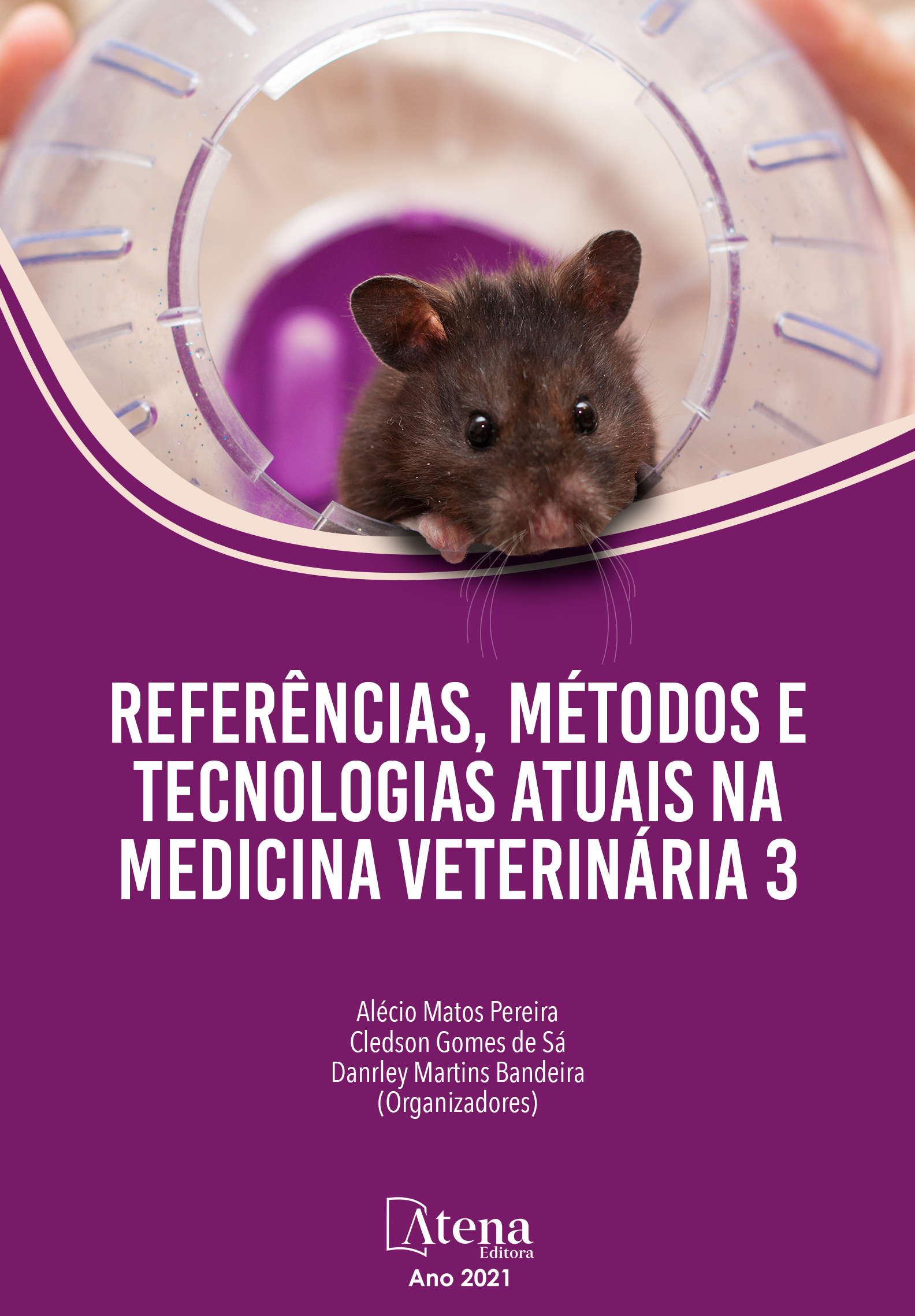
TOXOPLASMOSE CONGÊNITA: PREVENÇÃO E CUIDADOS NECESSÁRIOS NO PERÍODO GESTACIONAL. UMA REVISÃO BIBLIOGRÁFICA
A toxoplasmose tem como agente infeccioso o protozoário Toxoplasma gondii, um parasita que pode ser transmitido através do consumo de carne crua contendo cistos, ou água e alimentos contaminados por oocistos de fezes de felinos infectados. Se não tratada durante a gestação, pode desenvolver complicações maternas e malformação congênita, como danos neurológicos e morbidade fetal grave. Dada a importância epidemiológica e relevância temática, o presente trabalho objetivou expor dados e informar a população, sobre cuidados necessários e métodos preventivos. Foi realizada uma revisão de literatura de caráter integrativo por meio de levantamento bibliográfico em artigos e relatórios técnicos publicados no período de 2019 a 2021. De acordo com o estudo, estima-se que a cada 10.000 nascidos-vivos, 1 a 10 crianças nascem infectadas pelo T. gondii. Com o avanço gestacional o risco de transmissão materno-fetal aumenta, apresentando maior porcentagem de infecção no terceiro trimestre. Outro estudo demonstrou que o nível de consciência sobre prevenção é maior em mulheres multigestas do que em primigestas, revelando maior número de infecção em mulheres com primeira gestação. Os programas de rastreamento ajudam na redução da prevalência da toxoplasmose, como a assistência ao Pré-natal que prevê a investigação de doenças infecciosas. O exame para toxoplasmose é realizado na primeira consulta e deve ser repetido a cada trimestre, e é por meio do pré-natal que se faz diagnóstico e tratamento adequado evitando complicações materno-fetais. A prevenção primária é primordial para que a infecção durante a gestação seja evitada, por isso a educação populacional por meio da atenção básica de saúde se faz indispensável. É necessário que haja promoção de medidas preventivas que orientem sobre o consumo e manuseio correto dos alimentos, além de reforçar a importância de evitar exposição a fezes de gato, visto que em regiões com medidas profiláticas efetivas o índice de soropositividade é baixo.
TOXOPLASMOSE CONGÊNITA: PREVENÇÃO E CUIDADOS NECESSÁRIOS NO PERÍODO GESTACIONAL. UMA REVISÃO BIBLIOGRÁFICA
-
DOI: 10.22533/at.ed.80121200821
-
Palavras-chave: Toxoplasmose. Toxoplasmose congênita. Toxoplasmose fetal. Prevenção.
-
Keywords: Toxoplamosis. Toxoplasmosis, Congenital. Fetal, Toxoplasmosis. Prevention.
-
Abstract:
Toxoplasmosis has as its infectious agent the protozoan Toxoplasma gondii, a parasite that can be transmitted through the consumption of raw meat or undercooked meat containing cysts, or food and water contaminated by oocysts from infected feline feces. When untreated during pregnancy, there may be maternal complications and congenital malformations, such as neurological damage and severe fetal morbidity. Given the epidemiological importance and thematic relevance, the present study is aimed to expose data and inform the population about necessary care and preventive methods. An integrative literature review was carried out through a bibliographic survey of articles and technical reports published between 2019 and 2021. According to the study, it is estimated that at 10,000 live births, 1 to 10 children are born infected by T. gondii. With gestational advancement, the risk of maternal-fetal transmission becomes increased, with a higher percentage of infection in the third trimester. Another study demonstrated that the level of awareness about prevention is higher in multiparous women rather than in primiparous women, pointing out an increased number of infections in women with first pregnancy. Screening programs help to reduce the prevalence of toxoplasmosis, such as prenatal care, which provides investigation of infectious diseases. The investigation for toxoplasmosis is carried out at the first appointment and must be retook every quarter, and it is through prenatal care that adequate diagnosis and treatment is made, avoiding maternal-fetal complications. Primary prevention is considered essential to avoid infection during pregnancy, which is why popular education through primary health care is indispensable. It is necessary to promote preventive measures that guide the consumption and correct handling of food, in addition to reinforce the matter of avoiding exposure to cat feces, since regions with effective prophylactic measures have the lowest seropositivity index.
-
Número de páginas: 10
- Adrielly Ferreira Carrijo
- Thamires Augusta Magalhães
- Sinara Rodrigues de Sá
- Mable Pedriel Freitas
- Emília Samara Mariano Gonçalves
- Bruna de Almeida Martins
- Alliny Peres Siqueira
- Aliny Cristhina da Silva Souza Buriti
- Letícia Almeida de Oliveira
- Brenda Moraes Santos


